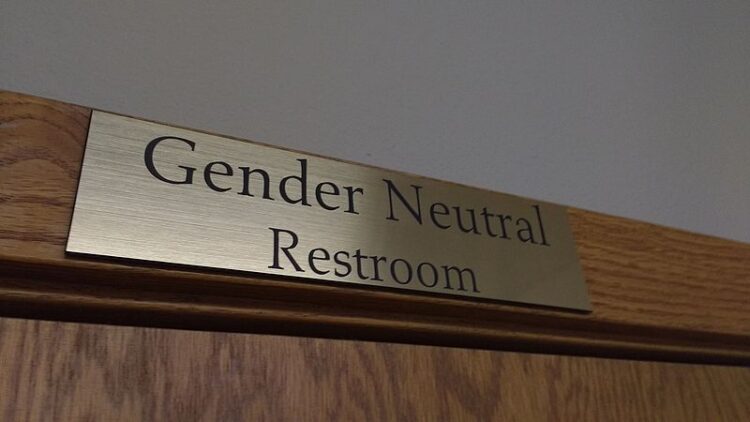The US Department of Education has once again revised and broadened the coverage of Title IX, a law initially conceived in 1972 to address gender discrimination in school activities. Since that time, the law has evolved to cover a much wider spectrum of issues, including sexual harassment, sexual assault, and other forms of discrimination within schools. While well-intentioned, the evolution of this civil rights law has created challenges across the education world and for students attending these institutions–specifically relating to the allocation of protection for individuals.
Under Title IX, students are provided protection against discrimination based on sexual preference and gender identity. This, in theory, is great for creating a more equitable learning environment, specifically if a student identifies as transgendered. Through this, however, challenges are posed to other students. While using correct pronouns was once an objective grammatical issue, misuse is now considered misgendering and a possible form of harassment subject to punishment under these regulations.

Even for religious or value-based reasons, students also are not allowed to speak out in opposition to gender identity issues. This form of expression is often classified as hate speech and is generally met with a punitive response. While seeking to level the playing field, programs have also suffered under these provisions.
Many programs that were deemed disproportionate are discontinued. Ironically, this creates more disproportionality through limiting options, as gender lines become more blurred. Male programs are forced to accept female participants but not vice versa. Examples of this can be seen through the presence of female athletes in football and the absence of males in school-sponsored volleyball.
Many schools may try to be proactive in addressing potential issues. Such measures could include implementing gender-neutral single-occupant bathrooms and changing facilities. These represent costly changes to schools’ infrastructure, with taxpayers footing the bill. Additionally, school staff may not receive adequate training to keep up with the ever-changing legislation or how to address potential situations.
Keeping in mind the rapid evolution of the law, providing current training to ensure compliance is likely a costly venture for educational institutions. Undoubtedly, institutions covered by Title IX (those receiving federal money) must depend heavily on using their attorneys to wade through the legal jargon and provide them with a list of ‘must comply’ items. While implicitly directed, these are not federally funded projects. The only incentives offered are punitive measures and the threat of removing federal funding for noncompliance.
By shifting responsibility onto public schools, colleges, and universities, we could see long-lasting and deep impacts on schools in the future. Accusations carry heavy consequences, even if proven to be inaccurate. Smaller schools, that already struggle with funding, could be forced to close their doors if confronted with a costly lawsuit. Along with the April 19th revision, the regulations were updated to include a new delegation of roles in addressing a complaint.
Previously, roles for handling the complaint process were separated to provide a system of checks and balances. Now, many of the positions have been consolidated. Most notable is the consolidation of the Title IX coordinator and investigator roles. This change places the responsibility of determining a just outcome on a single individual. With ever-changing regulations, subjective interpretation, and little guidance, the risk of encountering a costly situation is substantially higher. Legislators know this and have created a fall guy for their flawed system.
This leads to another flaw in the otherwise well-meaning system. Schools are often underfunded, understaffed, and otherwise ill-equipped to lead investigations. Staying true to this ‘hands-off’ approach at a governmental level, the law does not officially set a statute of limitations. At the state level, timelines for accepting complaints are handled subjectively. Some states used precedents to determine that two years is enough time to come forward, while others determined it is never too late. However, any precedents set at a state level are often unuseful since complaints always contain unique circumstances.
In short, no formal statute of limitations for Title IX complaints exists for holding educational institutions liable. It can be assumed that this would lead to a system where the need to develop impunity would be perceived as a higher priority than ensuring justice is served. Depending on the complaint, law enforcement may also be involved in a concurrent investigation, but it does not alleviate the requirements at the school level.
Through this justice system forced into schools, we can foresee other unfair outcomes for students. Parties accused of wrongdoing are guilty until proven innocent. Students are forced to stay in line or suffer consequences. A prime example of this was seen as the entire country sat and watched Lia Thomas compete for the University of Pennsylvania without objections. Transgender issues are tip-toed around instead of being confronted with genuine problem-solving. Guilty or innocent, an accusation predating the knowledge of current school officials, could leave a school or an accused student without defense. Students must either play along or suffer the consequences. Their voice no longer matters.
Flaws in Title IX regulations have been known for quite some time. These issues make periodic appearances in headlines. While high-profile complaints stay at the forefront, many challenges can be found down the street at our local schools. In schools at any level, the protection provided by the 1st and 14th Amendments appears to extend unidirectionally under federal legislation. Transgendered students are provided Constitutional protections while the remainder of the population must fall in line. Voiced disapproval over gender identity topics may initiate a Title IX investigation resulting in suspension, expulsion, or criminal charges.
Recently, Title IX has gained traction in the mainstream media due to the controversy surrounding collegiate women’s swimming. This marks a shift in popular opinion, as people listen to the small handful of female swimmers who have voiced displeasure about these intended gender equality corrections. Ironically, Title IX was initially drafted to protect women. In the wake, the NCAA and other institutions have walked back some of the more progressive measures intended to be proactive with Title IX compliance. It’s less than shocking that females would have negative reactions about competing against a biological male or the presence of an unwanted penis in the girls’ locker room. As the outcomes of Title IX’s evolution are further revealed, the monster we created will become more apparent.
Acknowledgment 1–I believe wholeheartedly that personal beliefs, however controversial, do not remove a person’s humanity and they deserve to be treated with dignity and respect. However, providing exceptions to any group at the expense of others is generally wrong. Opinions, by nature, cannot be incorrect. Everyone should have equal rights to voice them. However, the freedom to voice opinions should never be a freedom from rebuttals.
Acknowledgment 2–The concept of being transgender has only recently become mainstream. Systems at all levels are trying their best to learn the new expectations to keep up. Even the Oxford Dictionary felt the need to add the term “Cisgender” to describe people with biological gender identifications as recently as 2015. Nobody has an answer and everyone is rightly afraid to speak up.
References:
- https://commons.wikimedia.org/wiki/File:Gender_neutral_bathroom.jpg
The opinions expressed in this article are solely those of the author and do not necessarily reflect the views or opinions of The Real Republic LLC, realrepublic.com, or any of its affiliates. While our team strives to ensure the accuracy and reliability of the information provided, The Real Republic cannot guarantee the completeness, suitability, or validity of any information on this site or found by following any link. The Real Republic will not be liable for any errors or omissions in this information nor for the availability of this information. The Real Republic will not be liable for any losses, injuries, or damages from the display or use of this information.
















